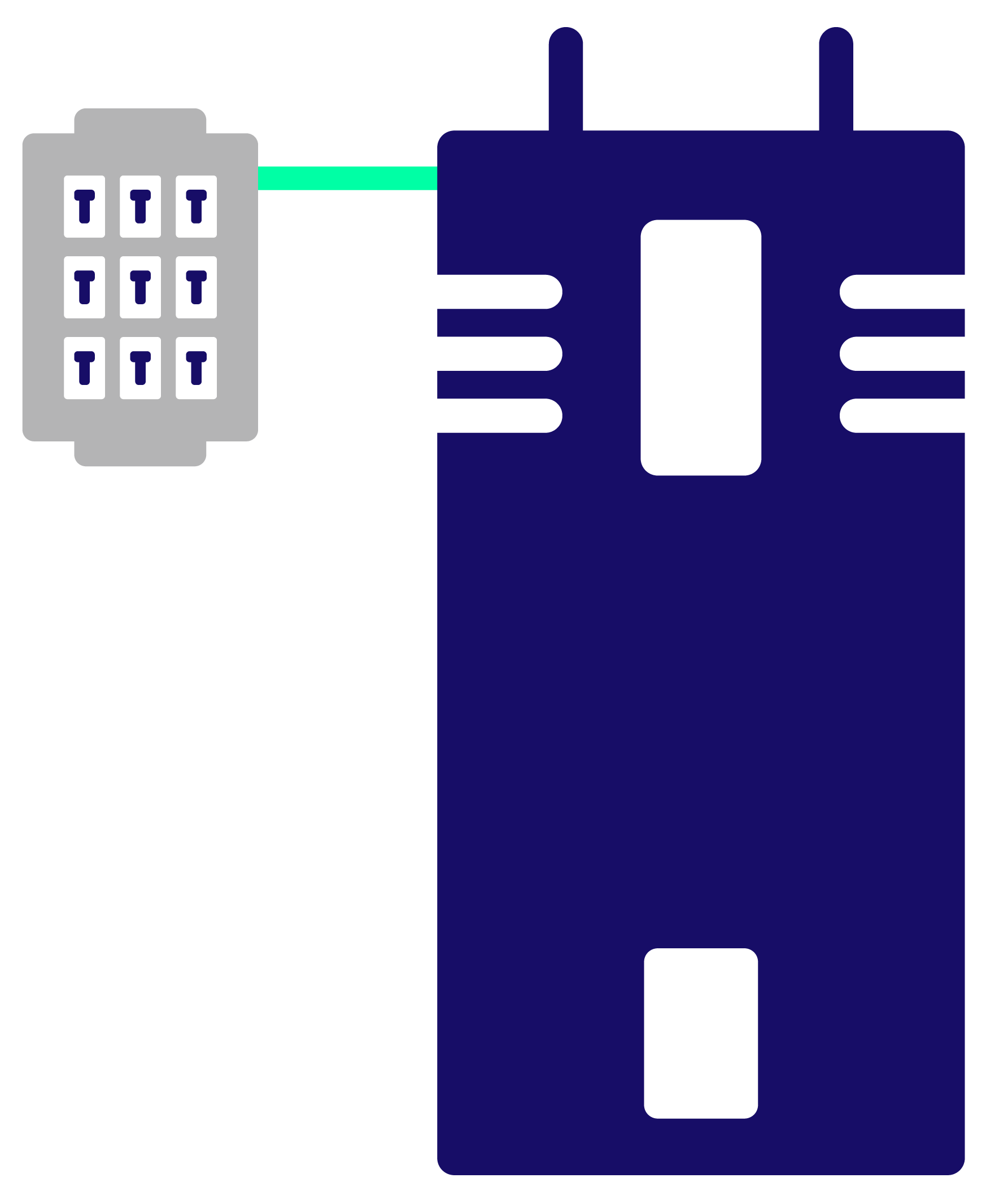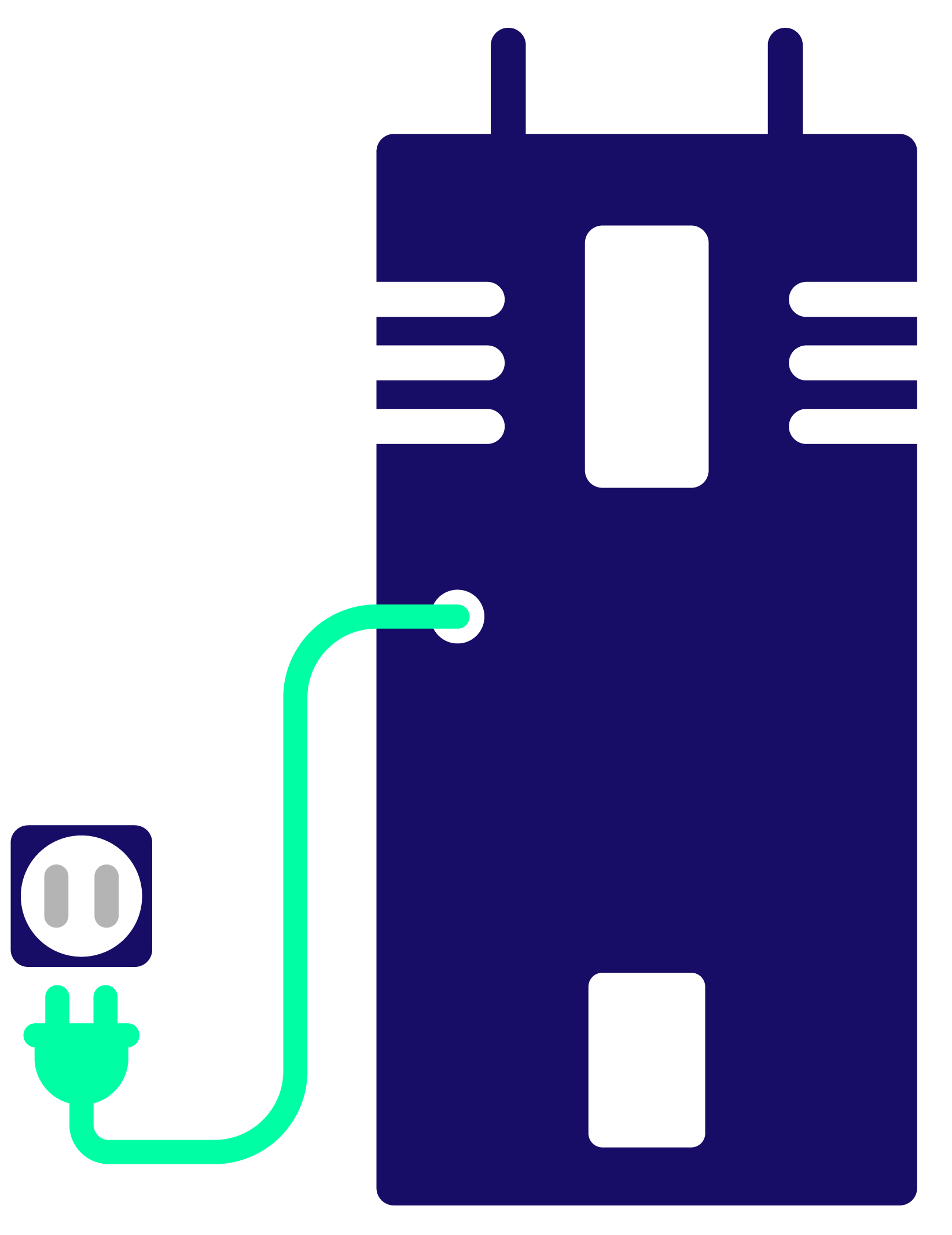Options for Your Home
The right heat pump water heater is waiting for you
As more and more people are choosing heat pump water heaters for their homes, there are now more options available than ever. Here are a few things to consider to ensure a smooth switch.
What fuel does your current water heater use?
The first step is determining whether your current water heater is electric or uses another fuel type, such as natural gas.
My current water heater is electric:
If you’re replacing a traditional electric water heater, you likely already have a 240-volt connection, so a 240-volt heat pump water heater may be your best option.
My current water heater isn't electric:
If you’re replacing a natural gas or propane water heater, consider your electric panel capacity and your home’s hot water demand when deciding what heat pump water heater is right for you.

240 volt (Hardwired)
- If you have more than four people in your home and have a high demand for hot water, you may want to consider a 240-volt heat pump water heater.
- This may require an electric panel upgrade, or employing strategies to manage your electric use. See the Electric Access and Panel Capacity section below and the Resources and FAQs page for more details.

120 volt (Plug-in)
- If you have fewer than four people in your home and don’t have a high demand for hot water, you may want to consider a 120-volt heat pump water heater.
- This may be a good option if you are limited on your electric amperage and want to avoid an electric panel upgrade.
- Many 120-volt heat pump water heaters can plug into a standard outlet, so they may be able to plug into the same outlet your previous water heater used.
A qualified plumbing and heating contractor with experience in heat pump water heaters can help you decide what’s the right option for you.
Many heat pump water heaters have a Wi-Fi connection, putting control right at your fingertips. Heading out of town? Simply switch to vacation mode from your phone and save energy while you’re away.
Other Things to Consider
In addition to voltage and the fuel type of your current water heater, here are some factors to consider when selecting and installing a heat pump water heater. You can discuss this with a qualified plumbing and heating contractor with experience in heat pump water heaters.
When choosing the right size heat pump water heater, you want to consider how many people are in your household and how much water they typically use at the same time (for example, back-to-back morning showers).
| Tank Size* | # of people in your house | # of daily back-to-back showers** |
|---|---|---|
| 50-gallon | Up to 2 adults or 2 adults and 1 child | 2 back-to-back showers |
| 65-gallon | 3 adults or 2 adults and 2 children | 3 back-to-back showers |
| 80-gallon | 4 or more adults or 2 adults and 3 or more children | 4 back-to-back showers |
*Tank sizing recommendation is based on a 240-volt heat pump water heater
**Assumes roughly 8-minute showers using 17.2 gallons of hot water
If your household uses a lot of hot water, your contractor may recommend a larger tank size so that your water heater relies more on the highly efficient heat pump, rather than the electric resistance, to maximize your energy savings.
The optimal size should provide your household with enough hot water to make it through your highest period of water usage, including for showers and baths, shaving, hand washing, food preparation, dishwashing and clothes washing. A qualified plumbing and heating contractor with experience in heat pump water heaters can help you choose the best size for your home.
The U.S. Department of Energy provides a worksheet for estimating your maximum one-hour water usage to help with equipment sizing.

Heat pump water heaters also need ample air space to work well. Basements can be an ideal location for a heat pump water heater. If you’re locating your heat pump water heater in a smaller space, like a utility closet, you may need to provide extra air by using things like a louvered door or wall grates to pull in air from an adjacent room, or by ducting it into another space. Be sure to talk with your plumbing and heating contractor about the space and ceiling clearance needed and consider any applicable building codes for your area.
If you are upgrading to a heat pump water heater, you should assess your panel size. You may need an electric panel upgrade, particularly if you are upgrading from a natural gas water heater to a 240-volt heat pump water heater. You can follow this guidance to determine your panel size or talk with a licensed electrician if you are unsure if you need an upgrade. With new advancements in low-voltage appliances (such as 120-volt heat pump water heaters) and load-sharing devices, there may be ways that you can manage your electric use without the need for an electric panel upgrade. See the Resources and FAQs page for more information on this.
Heat pump water heaters generate a small amount of sound (about as much as a dishwasher) and also generate cool air, so they’re better suited to basements, garages, interior rooms or sheds and utility closets, rather than living spaces.
Heat pump water heaters produce a small amount of pure water condensate that must be plumbed to a sink or drain. If your water heater is near a clothes washer or furnace, you likely will have water drainage or a water pump nearby.
A heat pump water heater may also help dehumidify the air. As it pulls in air to heat your water, it releases cooler, drier air. It can help reduce moisture in spaces like basements or utility rooms.
Know your goals
Heat pump water heaters can be a great option for your home if you are looking to:
Goal 1: Improve my home’s efficiency
Water heating is often the second largest use of household energy—about 18% of your home’s overall energy—so switching to an energy-efficient heat pump water heater can be a great way to save.
Goal 2: Save money on my energy bill
Heat pump water heaters use far less energy than traditional models, which could help save you money on your energy bill. See the Savings Calculator to get an idea of how a heat pump water heater might work for you.
Goal 3: Help stop climate change
Heat pump water heaters can be an important way to reduce your home energy usage without sacrificing comfort, which helps make our environment cleaner and more sustainable.
Interested?
See the ComEd Savings Calculator for estimates of your bill impacts for heat pump water heaters.
